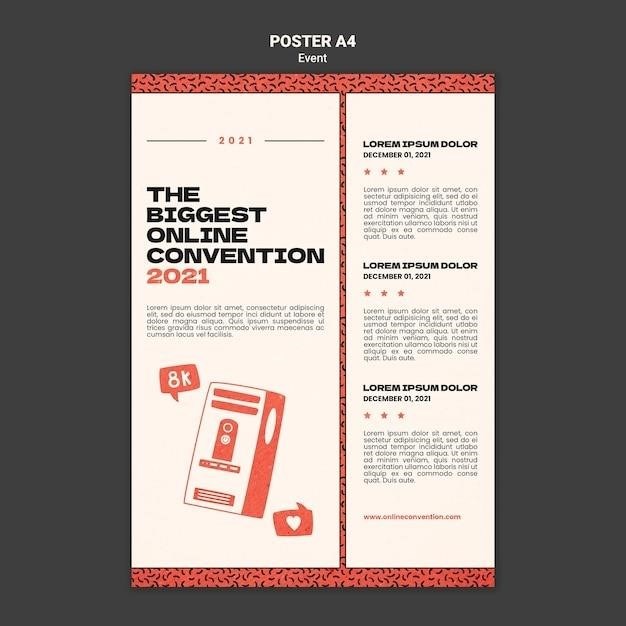Understanding CPNs
A CPN, or Credit Privacy Number, is a 9-digit number that can be used to build credit separate from your Social Security Number (SSN). It is often promoted as a way to protect your personal information and maintain privacy. However, it is important to be aware of the legal and practical implications of using a CPN.
What is a CPN?
A Credit Privacy Number (CPN) is a 9-digit number that is promoted as a way to separate your credit history from your Social Security Number (SSN). The idea is that you can use this number to build credit without impacting your existing credit score. CPNs are often presented as a way to protect your identity and privacy, especially if you’ve had past credit problems.
However, it is crucial to understand that CPNs are not recognized by the major credit bureaus (Equifax, Experian, and TransUnion) as legitimate identifiers. They are not issued by the government or any official credit reporting agency. Instead, they are often generated by private companies or individuals using various methods, which may involve questionable practices.
Legality and Purpose of CPNs
The legality of using a CPN is a complex and often misunderstood topic. While proponents argue that CPNs can be used for identity protection and credit building, the reality is that using a CPN to replace your SSN for credit purposes is generally considered illegal.
The Federal Trade Commission (FTC) warns against using CPNs as a way to avoid debt or improve credit, stating that they are often associated with fraudulent schemes. Using a fabricated number to obtain credit is considered identity theft, which is a serious criminal offense.
It’s important to remember that legitimate credit reporting agencies and financial institutions only recognize your SSN as your primary identifier. Attempting to use a CPN in place of your SSN can lead to serious consequences, including legal penalties and damage to your credit history.
Creating a CPN
Creating a CPN often involves generating a random 9-digit number and using it to establish a new credit profile.
Choosing a CPN Number
Choosing a CPN number is a crucial step in the process. Many online guides suggest using online tools to generate random 9-digit numbers, often emphasizing the importance of selecting a number that matches your state. This approach is often presented as a way to enhance the legitimacy of the CPN. Some guides also recommend checking if the number has been previously issued, ensuring it’s unique. The process typically involves inputting the number into a database, which is often described as a “validation” step. However, the reliability and accuracy of these databases are often unclear. This step is presented as a way to minimize the risk of using an already existing number, further emphasizing the perceived legitimacy of the process.
Gathering Required Information
Once you have chosen a CPN number, you’ll need to gather some basic information to create a credit profile. Many guides emphasize the importance of using untraceable addresses, phone numbers, and emails. This is presented as a way to prevent your CPN from being linked to your real identity. Some guides suggest using temporary email addresses or creating fake accounts on social media platforms, further emphasizing the need for anonymity. These steps are often presented as essential for maintaining privacy and protecting your personal information. The guides often recommend using online tools to generate fake addresses and phone numbers, offering step-by-step instructions and templates. This approach is often framed as a way to create a completely separate identity that can be used for building credit with the CPN.
Applying for a CPN
The process of applying for a CPN is often described as simple and straightforward in online guides. These guides typically involve using an online tool or website to generate a CPN number. Some guides recommend using specific websites or software programs that claim to generate legitimate CPN numbers. The application process typically involves providing the chosen CPN number, along with the fabricated personal information you gathered. Some guides advise creating a fake email address and using a virtual private network (VPN) to further enhance privacy. Once you have submitted your application, you will usually receive confirmation of your CPN number and instructions on how to start building credit with it. The guides often emphasize the need to be patient and consistent when applying for credit using a CPN. They recommend starting with smaller credit lines and gradually increasing them over time.
Using a CPN
Once you have a CPN, you can use it to build credit and establish a separate financial identity.
Building Credit with a CPN
The idea behind using a CPN to build credit is to create a separate credit history that is not tied to your SSN. This can be beneficial for individuals who have damaged their credit or are concerned about identity theft. By using a CPN, you can apply for credit cards, loans, and other financial products without revealing your SSN. This can help you build a positive credit history without affecting your existing credit score. However, it is important to note that using a CPN to build credit is not without risk.
Protecting Your Personal Information
Proponents of CPNs often claim that they provide a layer of protection against identity theft. The idea is that by using a CPN instead of your SSN, you can prevent your personal information from being compromised. However, it’s crucial to understand that creating and using a CPN is a risky proposition. Many experts argue that CPNs are not a legitimate form of identity protection and can even increase your vulnerability to fraud. CPNs are often associated with fraudulent schemes, and using one could potentially lead to legal complications.

CPN Concerns
Despite claims of legitimacy, CPNs are often associated with deceptive practices and potential legal risks.
Fraudulent CPN Schemes
Be wary of companies claiming to offer CPNs as a quick fix for bad credit or a guaranteed way to achieve a high credit score. These schemes often involve creating fake credit profiles using randomly generated Social Security Numbers or other fabricated information. The companies behind these schemes may charge hefty fees for services that ultimately provide no real benefit and could even put you at risk of identity theft.
If you are considering using a CPN, be sure to do your research and only work with reputable providers. Remember, there is no legitimate way to create a CPN that will be recognized by credit bureaus or financial institutions.
Potential Risks of Using a CPN
While some individuals may promote CPNs as a way to protect their identity and build credit, the use of CPNs carries inherent risks. Banks and financial institutions have sophisticated systems to detect fraudulent activity, and using a CPN to create a new credit history could be flagged as suspicious. This could lead to your accounts being frozen, credit lines being denied, and even legal repercussions.
Moreover, using a CPN may complicate your financial life. If you need to apply for a loan, mortgage, or other financial products, the use of a CPN could create confusion and delays. It is best to focus on building a strong credit history using your legitimate Social Security Number and legal financial practices.
Alternatives to CPNs
Instead of using a CPN, consider improving your credit score through responsible financial practices and protecting your identity through secure measures.
Improving Your Credit Score
Building a strong credit history is essential for accessing loans, securing credit cards, and obtaining favorable interest rates. Instead of relying on a CPN, focus on improving your credit score through proven methods. Pay your bills on time, keep your credit utilization low, and avoid opening too many new accounts simultaneously. Regularly check your credit report for errors and dispute any inaccuracies; Consider using a credit monitoring service to stay informed about potential threats to your credit. By taking proactive steps to improve your credit score, you can establish a solid financial foundation without resorting to questionable practices.
Protecting Your Identity
Protecting your identity is crucial in today’s digital age. Instead of relying on CPNs, which can be risky and potentially illegal, focus on proven methods for safeguarding your personal information. Monitor your credit reports regularly, use strong passwords for online accounts, and be cautious about sharing sensitive data online. Avoid phishing scams, be wary of suspicious emails and phone calls, and install reputable antivirus software on your devices. Consider using a credit freeze or fraud alert to further protect your identity. By taking these steps, you can significantly reduce the risk of identity theft and ensure your personal information remains secure.
CPN Resources
Online resources provide information about CPNs, including guides, tutorials, and software. However, it is essential to be cautious and verify the legitimacy of any information or services offered.
Online Guides and Tutorials
The internet is a treasure trove of information, including numerous guides and tutorials on creating and utilizing CPNs. These resources often provide step-by-step instructions, covering aspects such as choosing a CPN number, gathering required information, and applying for a CPN. Some guides even delve into building credit using a CPN and protecting your personal information. However, it is crucial to exercise caution when navigating these resources, as not all information is accurate or legitimate. It is important to cross-reference information and seek advice from reputable sources before taking any actions based on online guides and tutorials.
CPN-Related Software and Tools
While the concept of CPNs is relatively straightforward, some online resources offer software and tools designed to simplify the process of creating and managing CPNs. These tools can help with tasks such as generating random CPN numbers, creating fake addresses and contact information, and even automating the application process. However, it is important to understand that using such software carries significant risks. These tools are often associated with fraudulent activities, and using them could potentially lead to legal trouble or identity theft. It is strongly advised to avoid using any software or tools related to CPN creation unless you are fully aware of the potential consequences and have consulted with legal professionals.


